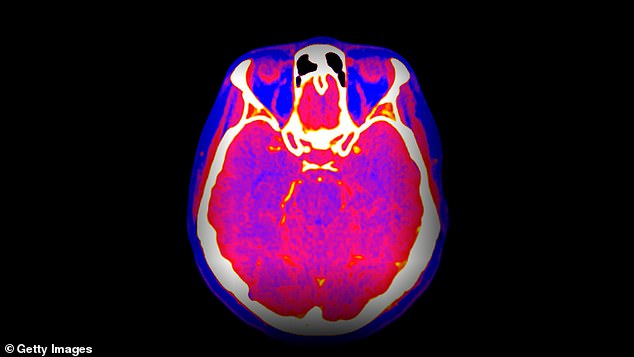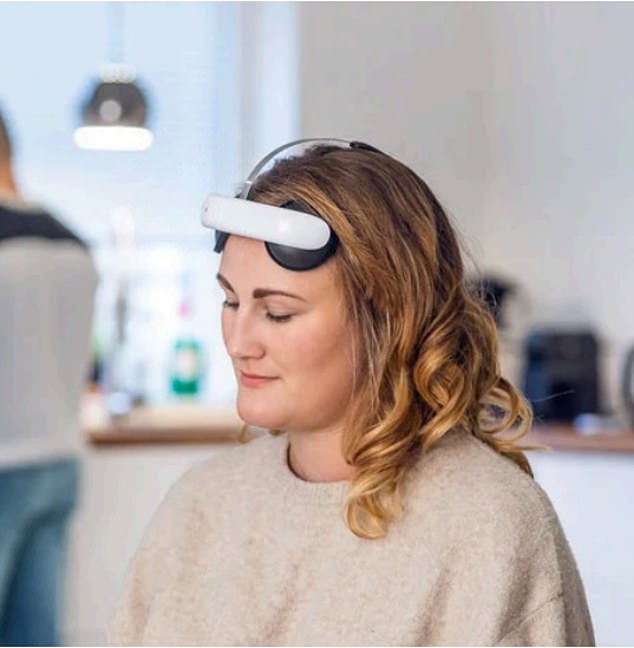A headset that attacks the brain could be used to help treat depression at home, a study suggests.
Researchers have found that patients who use the device for 30 minutes a day can increase their chances of beating the disease three times.
Mental illness, also called major depressive disorder, affects around one in six adults in the UK and its prevalence appears to be increasing.
Current treatment includes antidepressants and psychological therapies, but more than a third of people diagnosed with the disorder do not fully recover.
An international team led by researchers at King’s College London (KCL) investigated whether brain zapping could work as a treatment.
Researchers have found that patients who use the device, called Flow FL-100, for 30 minutes a day can increase their chances of beating the disease three times.

Mental illness, also called major depressive disorder, affects around one in six adults in the UK and its prevalence appears to be increasing. (File photo)
Its headphones, called Flow FL-100, have two electrodes that deliver a weak direct current to the scalp.
It is now commercially available and targets an area of the brain linked to low activity in people with depression.
A total of 174 patients participated, half of whom received the “tingling” brain stimulation. The other half, the “control” group, used the device but only received a brief current to mimic the sensation.
Participants used the device at home while being monitored by scientists via video link.
The treatment lasted half an hour at a time and patients received five sessions per week for the first three weeks, followed by three sessions per week for the next seven weeks.
The analysis revealed that the treatment relieved all symptoms of depression in more than half of the patients at the end of the trial.
And those who received the treatment were up to three times more likely to achieve remission compared to the control group.
The team said their findings suggest that home brain stimulation could serve as a first-line treatment for people with depression.

An international team led by researchers at King’s College London (KCL) investigated whether brain zapping could work as a treatment.

Current treatment includes antidepressants and psychological therapies, but more than a third of people diagnosed with the disorder do not fully recover. (File photo)
Professor Cynthia Fu, lead author of the study, said: “The burden of depression is felt primarily by the 280 million people worldwide who currently suffer from symptoms.”
‘Although a combination of antidepressants and therapy is generally effective for many people, the medication can have side effects that some may find disturbing.
“Our study has shown that (the device) is a potential first-line option that could help those in need.”
Commenting on the findings, Allan Young, director of the center for affective disorders at KCL’s Institute of Psychiatry, Psychology and Neuroscience, said: “These results are very interesting and are set to have a significant impact on the future treatment of depression.
‘Major depression is untreated worldwide and current treatment modalities have significant limitations.
“This trial demonstrates that this treatment is effective and well tolerated, offering patients who currently struggle to find options that work for them a vital new alternative.”
The findings were published in the journal Nature Medicine.


